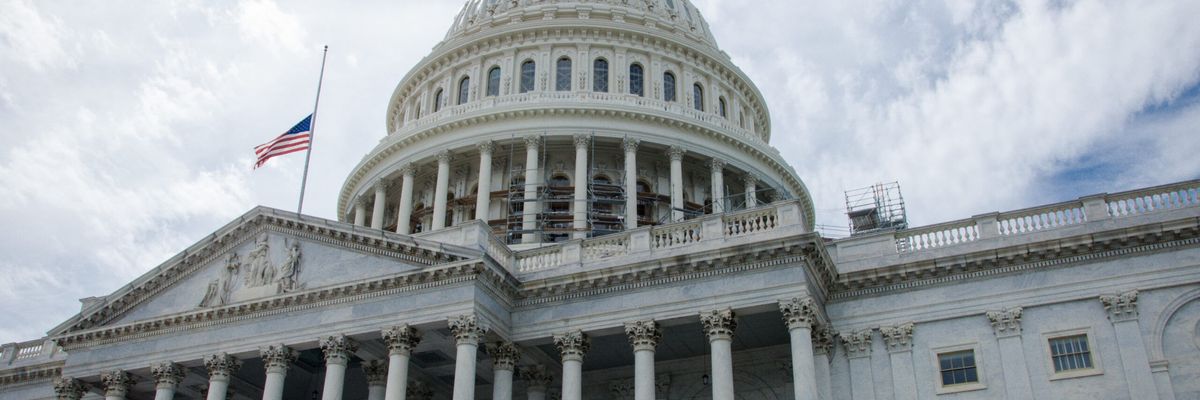Nearly 50 national, state and local organizations across the country — including Public Citizen, Sunrise Movement, and MoveOn — banded together today to urge Congress against giving the Pentagon any more money beyond the president’s request and to go a step further by reducing the authorized amount by 10 percent.
These two proposals were codified in separate amendments to the FY2022 National Defense Authorization Act. The first, led by Rep. Barbara Lee (D-Calif.), would overturn the $25 billion increase over what President Biden had requested for the Pentagon that the House Armed Services Committee added in during the NDAA’s markup process.
The second, led by Rep. Mark Pocan (D-Wis.), would cut the Pentagon’s approved topline by 10 percent, whether Lee’s amendment is ultimately approved or not.
“Pouring billions more into the military, far beyond even the level requested by President Biden, sends exactly the wrong message at this moment in history,” states the letter, of which the Quincy Institute for Responsible Statecraft is also a signatory. “We are struggling to end a deadly pandemic, deal with the looming climate crisis, confront racial injustice, and secure badly-needed relief for working people all over the country. These are problems that no amount of military spending could ever solve.”
The push comes as President Biden on Tuesday in his speech to the United Nations downplayed the military’s role in ongoing and future security threats. “U.S. military power must be our tool of last resort. Not our first,” he said, adding, “Many of our greatest concerns cannot be solved or even addressed through the force of arms. Bombs and bullets cannot defend against COVID-19 or its future variants.”
Indeed, polling shows that Americans support reducing military spending. A poll conducted last year by Data for Progress found that 59 percent of those surveyed said they at least somewhat supported Pocan’s proposal, with the caveat that the eliminated portion of the defense budget would not impact military personnel and would instead be directed toward fighting COVID-19, education, health care, and housing. Meanwhile, a poll from the Chicago Council on Global Affairs in December found that just 23 percent of Americans want to increase the Pentagon budget.
Rep. Lee’s and Rep. Pocan’s amendments will receive a vote later this week.














